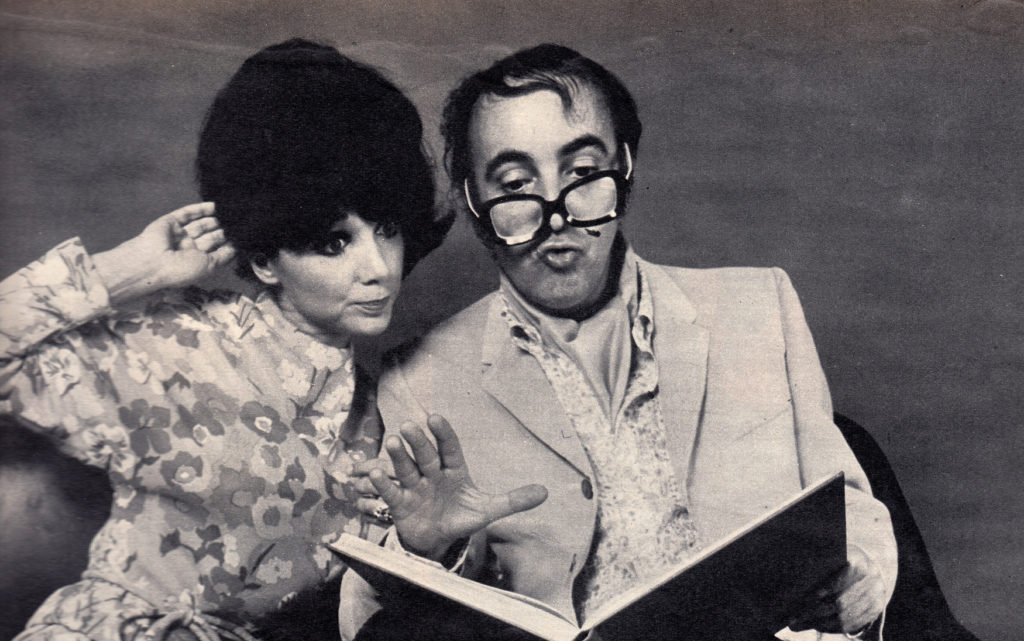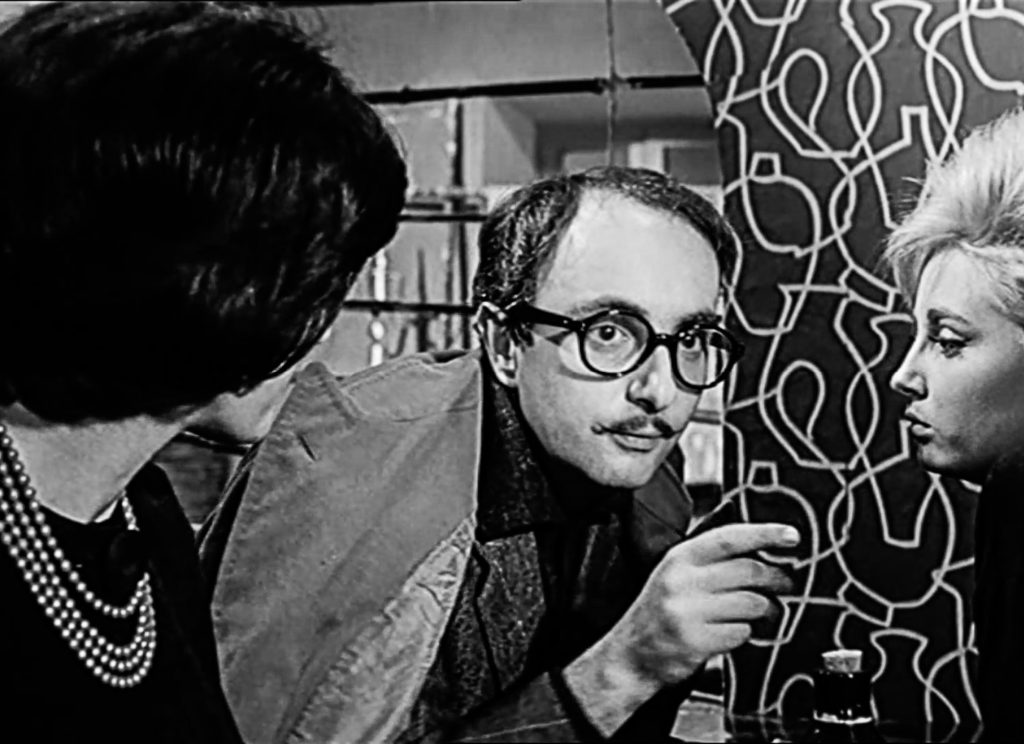Review: Life As a B-Movie: Piero Vivarelli (2019) Fabrizio Laurenti, Niccolò Vivarelli
The Italian B movie scene has had a huge reappraisal over recent years. Benefiting from Quentin Tarantino’s public trumpeting of their virtues and influence on his own work – Once Upon a Time in Hollywood even sports an Italian interlude – it is getting to the point that the B movies are rivaling the A movies in notoriety. This was a period when Italians were blessed with a mere two state run TV channels, both of which were in black and white. Cinema attendance was a frequently two or three times a week activity and the studios at their height were churning out frequently lurid content on an almost daily basis.
Piero Vivarelli’s career spans the birth, the high-point and the eventual decline of popular Italian genre cinema. Starting as a music journalist and impresario, Vivarelli’s first hit was the penning of the Italian rock classic ‘24,000 Baci’ made famous by Adriano Celentano and covered the world over. It is a pop song that sings of a full throated lust for the new that was going to propel a creaking post-war Italy into the middle of La Dolce Vita. Working with future gorehound and cult horror director Lucio Fulci, the early 60s saw Vivarelli direct a series of musicarellis such as Io Bacio…Tu Baci (1961) which promoted the new rock and roll lifestyle of the young while taking none too subtle swipes at the spoil sport establishment and – this being Italy – the Catholic-church inspired moral consensus. The films featured such iconic talents as the songstress Mina, Celentano and Chet Baker in a sadly drugged up phase. A Jack of All Trades, Vivarelli continued to write pop journalism, doctor scripts and organise concerts, proving instrumental in bringing Led Zeppelin to Italy.
Another iconic contribution came with his script for Sergio Corbucci’s Django (1966), which he wrote in collaboration with Franco Rossetti. One of the most political Spaghetti Westerns, it is certainly the most famous non-Leone film of the genre. Vivarelli’s contribution was fundamental à it was he who came up with the hand mangling final scene and the name, inspired by the famous jazz guitarist Django Rheinhardt. As the sixties waned, Vivarelli moved into the genre of erotic/exotic cinema, mixing soft porn, with thriller elements and exotic travelogues. These included such rediscovered classics as The Snake God and Black Decameron as well as scripting gigs for the Emanuelle sequels starring Laura Gemser as a travel journalist touring the world and having a lot of sex. Many of these films both reflect and seek to promote a sexual revolution which was full of messy male fantasies as well as female empowerment and liberation.
Filmmakers Fabrizio Laurenti and Niccolò Vivarelli have created a vibrant and entertaining documentary which is as colourful as Piero Vivarelli’s life. Despite a family connection – Niccolò is Piero’s nephew – there is a warts and all frankness to the portrait. Talking heads of contemporaries and family members portray Vivarelli as a hedonist and anarchist with a sometimes brutal honesty and little concern about other people’s feelings when it came to pursuing his own appetites. An ardent party goer, Vivarelli had any number of affairs going at any one time, including several wives and children who were never quite sure who their mothers were. Tragically one son would have a career in film as an actor and producer cut short when his own hedonistic urges led him to an early grave. Born in Sienna, Vivarelli encapsulates the political turmoil of the period. Enrolled for a time in the fascist brigades in later life Vivarelli became a member of the communist party and was even granted the rare honour of membership of the Cuban communist party following the revolution.
There is a sense of regret to the documentary as well. The personal lives bruised in Vivarelli’s own frenetic forward motion is obvious but also the sense that he could have been a great director and made better films if he hadn’t been so occupied with bedding the actresses. Few of his films stand comparison with the other filmmakers of the period such as Michelangelo Antonioni and Federico Fellini, but as one contributor points out, the films of the auteurs were financed by the profits of the exploitation cinema that came from the likes of Vivarelli. However, this documentary will encourage many to go back and check out such movies as East Zone West Zone (1962) or his autobiographical Nella misura in cui…(1979).
Life As a B-Movie: Piero Vivarelli was screened in the Venice Classics Documentary Films sidebar of the Venice International Film festival.
Title: Life As a B-Movie: Piero Vivarelli
Country: Italy
Running time: 83′
Language: Italian, French and Spanish
Written/ directed by: Fabrizio Laurenti & Niccolò Vivarelli
Production: Teatime Film, Istituto Luce Cinecittà, Wildside
Producers: Marcantonio Borghese & Taku Komayas
Cinematography/ Editing/ Camera and Electrical Department: Fabrizio Laurenti
Animation: Luca Tommasini
Sound: Riccardo Cimino
Cast: Adriano Aragozzini, Pupi Avati, Lars Bloch, Franco Nero, Rita Pavone, Quentin Tarantino; Franco Rosseti, Giona Nazzaro, Emir Kusturica, Beryl Cunningham, Steve della Casa, Beppe Attene



















2020-05-30 @ 17:43
sounds terrific, Nic. RodNordland